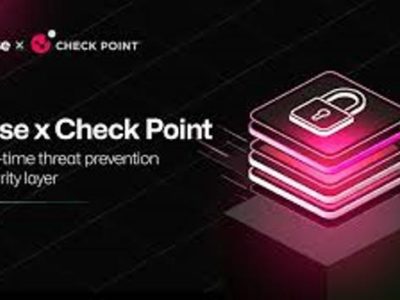From this week, it is now mandatory to use the National Identification Number (NIN) to access government and other services in Nigeria.
The Federal Executive Council (FEC), the highest approving authority in Nigeria, last year, September 12, 2018, approved the new National Digital Identity Ecosystem Strategic Roadmap for the enrolment of Nigerians and legal residents into the National Identity Database (NIDB).
The NIDB is managed by the National Identity Management Commission (NIMC).
The FEC also approved that the usage of the NIN becomes mandatory from January 1, 2019 meaning that citizens are now under obligation to present their NIN to access any government and other service across the country.
The NIN consists of 11 non- intelligible numbers randomly chosen and assigned to an individual at the completion of enrolment into the NIDB. It is used to tie all records about an individual in the database and is also used to establish or verify his/her identity.
All federal government ministries, agencies and departments (MDAs) that take records of personnel/provide services requiring the identification of a person, shall from January 1, 2019 mandatorily demand the NIN from citizens to offer any of such services, said Director-General of NIMC, Mr. Aliyu Aziz in a statement in Abuja.
He said citizens need not fear that they will be completely prevented from accessing government and other services as from January 1, 2019 rather citizens without NIN will now be mandatorily registered for NIN before they could access such services. His words:
“The process is simple and shall bring no stress to anyone. When the Federal Executive Council says mandatory usage of the NIN from January 1, 2019, it means that from that date onward, the agencies providing services listed under Section 27 of the NIMC Act and Section 1 of the Mandatory Use of the National Identification Number Regulations 2017 shall demand the NIN from citizens or legal residents before offering them any service.”
Section 27 – (1) of the NIMC Act 2007 states: “As from the date specified in that regard in regulation made by the Commission, the National Identity Number issued to a registered individual must be presented for the following transactions, that is: application for, and issuance of a passport; opening of individual and/or personal bank accounts; purchase of insurance policies; subject to the provisions of the Land Use Act, the purchase, transfer and registration of land by any individual or any transaction connected therewith; such transactions pertaining to individuals as may be prescribed and regulated by the Pension Reform Act, 2004; such transactions specified under the Contributory Health Insurance Scheme; such transactions that have social security implications; all consumer credit transactions; registration of voters and payment of taxes;
And, Section 27 (2) of the Act states: “Any authority or organisation to which a person applies to carry out any transaction listed under sub section (1) of this section shall request such person to produce his Multipurpose Identity Card or National Identification Number.”
Ministries and agencies such as Education, Aviation, Office of the Head of Service of the Federation, Office of the Accountant General of the Federation, National Population Commission, National Independent Electoral Commission, Corporate Affairs Commission, Federal Inland Revenue Service, the Nigerian Communications Commission, National Health Insurance Scheme, Economic and Financial Crimes Commission, Joint Admissions and Matriculation Board, Nigeria Police Force, Security and Exchange Commission among others must request and verify the NIN as already adopted by the Nigeria Inter-Bank Settlement System, Nigeria Immigration Service, Federal Road Safety Commission and the National Pension Commission.
Aziz said from this month, the law now requires that these government establishments or their licensed agents, along with private sector organisations to be licensed by NIMC, may carry out mandatory enrolment or collection of citizens data under the digital identity ecosystem designed to fast-tracking the enrolment process in the national identity system. His words:
“We have a mandate to register all Nigerians and legal residents or at least over 95 per cent of the population within the next three years. It does not necessarily mean that NIMC must have offices or enrolment centres in all nooks and crannies of the country, especially given the current economic situation and realities in our country.
“Instead, in its wisdom the Federal Government approved the new digital identity ecosystem which ensures and mandates all government agencies earlier mentioned and private sector organisations to be licensed by NIMC, to collect citizens’ data using guidelines issued by the NIMC and through secure approved channels of communication send such data to NIMC to generate the NIN.
“This Strategic Roadmap, which is supported by the World Bank, puts Nigeria on the path to becoming one of the leading countries in the World with a verifiable and credible identity system, which is the bedrock for planning, financial management and shrewd budgetary scheme.”
Meanwhile, over 300,000 national identity cards for those who enrolled in 2012 are ready for collection. NIMC Spokesman, Mr. Loveday Ogbonna, said that those concerned should visit the enrolment centres where they registered and pick up their cards, which had since been printed and ready for collection.
































